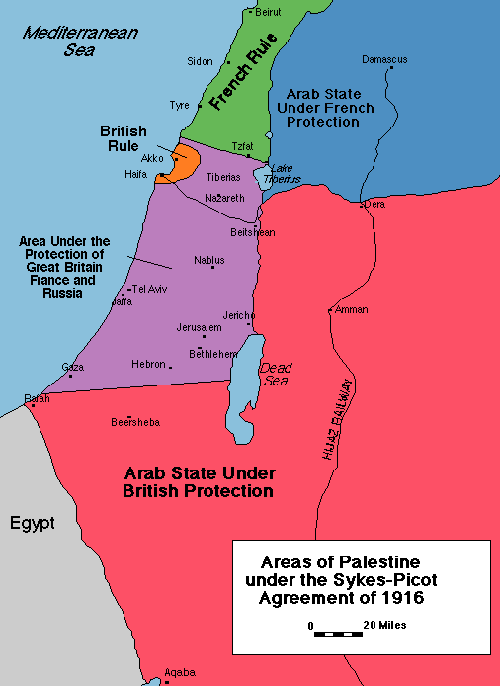Nadene Goldfoot
World War I: In the Trenches: A chemist, Chaim Weizmann's acetone production method was of great importance in the manufacture of cordite explosive propellants for the British war industry during World War I which helped to win the war.Weizmann met Arthur Balfour, a Conservative MP representing one of the districts of Manchester, during one of Balfour's electoral campaigns in 1905–1906. Balfour supported the concept of a Jewish homeland, but felt that there would be more support among politicians for the then-current offer in Uganda, called the British Uganda Programme.(I simply cannot fathom a Uganda being the Jewish Homeland.)
Following mainstream Zionist rejection of that proposal, Weizmann, born in Motaĺ, Belarus, was credited later with persuading Balfour, by then the Foreign Secretary during the First World War, for British support to establish a Jewish homeland in Palestine, the original Zionist aspiration. The story goes that Weizmann asked Balfour, "Would you give up London to live in Saskatchewan?" When Balfour replied that the British had always lived in London, Weizmann responded, "Yes, and we lived in Jerusalem when London was still a marsh." Nevertheless, this had not prevented naturalization as a British subject in 1910 with the help of haham Moses Gaster, who asked for papers from Herbert Samuel, (Jewish) the minister.
Royal cousins: Kaiser Wilhelm II and King George V went to war (Germany and Great Britain) They were at odds with each other, Germany against England. One aspect of the war upon which she remarks is the close connection among the three principal monarchs of the age, Kaiser Wilhelm II of Germany; King George V of England; and Tsar Nicholas II of Russia. In fact, they were all cousins with each other: Wilhelm and George were first cousins, George and Nicholas were also first cousins, and Wilhelm and Nicholas were third cousins.* This was to affect the Middle East's future even more than the West, where more people would be killed thus far in history.The Arab High Command began their protest by calling for a general strike of Arab workers and a boycott of Jewish products. These actions swiftly escalated into terrorist attacks against the Jews and the British. This first stage of the “Arab Revolt” lasted until November 1936. The second stage began in September 1937, shortly after the recommended the partition of Palestine. In this second phase, clashes with the British forces became much more severe, as did the attacks on Jewish settlements. This was at the same time that Nazis were coming to power in Germany with Hitler and Jews were being persecuted.
Emir Faisal: Faisal I bin Al-Hussein bin Ali Al-Hashemi (Arabic: فيصل الأول بن الحسين بن علي الهاشمي, Fayṣal al-Awwal bin al-Ḥusayn bin 'Alī al-Hāshimī; (20 May 1885 – 8 September 1933) was King of the Arab Kingdom of Syria or Greater Syria in 1920, and was King of Iraq from 23 August 1921 to 1933. He was the third son of Hussein bin Ali, the Grand Emir and Sharif of Mecca, who was proclaimed as King of the Arabs in June 1916. He was a 38th-generation direct descendant of Muhammad, as he belongs to the Hashemite family. He's an ancestor of King Abdullah of Jordan.
 Evidence of Haj Amin al- Husseini-the Grand Mufti before the Royal Commission, January 12, 1937: "Lord Peel...Just one question, then. You want completely to stop Jewish immigration. What do you want to do with the 400,000 Jews here at present?
Evidence of Haj Amin al- Husseini-the Grand Mufti before the Royal Commission, January 12, 1937: "Lord Peel...Just one question, then. You want completely to stop Jewish immigration. What do you want to do with the 400,000 Jews here at present? The First World War , The most deadly we've ever had only 107 years ago. 
The Empire connected to the border of Bulgaria

In the years that followed, the Sykes-Picot Agreement became the target of bitter criticism both in France and in England. Lloyd George referred to it as an "egregious" and a "foolish" document. Zionist aspirations were also passed over and this lapse was severely criticized by William R. Hall, head of the Intelligence Department of the British Admiralty, who pointed out that the Jews have "a strong material, and a very strong political interest in the future of the country and that in the Brown area the question of Zionism… [ought] to be considered."
Areas of Palestine per the agreement |
The agreement was officially abrogated by the Allies at the San Remo Conference in April 1920, when the Mandate for Palestine was conferred upon Britain.








No comments:
Post a Comment